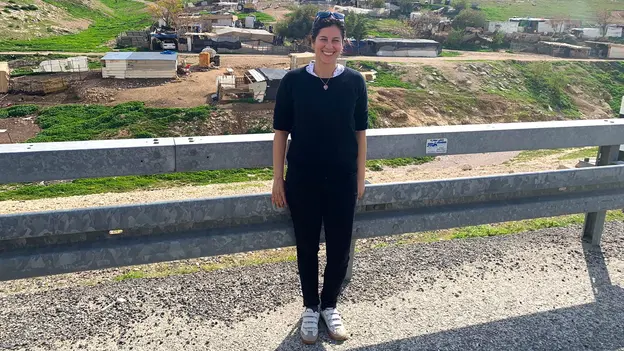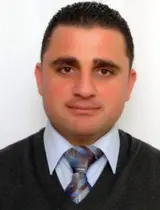Working Group Project
Societal Well-Being and Minority Health in the Post-COVID Era
Empirical Study
The global COVID-19 pandemic has greatly affected the overall social well-being of individuals worldwide. It has disrupted people's ability to actively participate in society and feel connected to a broader social environment. The pandemic hit minorities, who were already more isolated and disconnected from society before the pandemic, with particular severity. While research so far has mostly focused on analysing large datasets collected during the main phase of the pandemic, the transition to the post-COVID era has solidified. This project aims to capture the impact of the transition to a post-pandemic phase specifically in Palestine, which is characterized by a significant presence of minority communities. The project partners focus on minority health and societal well-being among Bedouins, Palestinian refugees, and the Palestinian majority in the West Bank.
Studying minority well-being in Palestine during and after the pandemic
This project draws on a series of preceding AGYA projects, with novel data collected on the situation of Bedouins, internal refugees, and the Palestinian majority in the West Bank from 2021 onwards. In the first project, a survey was conducted among Bedouins and Palestinian refugees in the West Bank, asking for their perceived medical support and exclusion during the pandemic, and how the pandemic has affected their health status.
In 2022, the project partners began conducting surveys in Palestinian refugee camps in combination with the collection of blood samples to establish reference values for vitamin B12 and vitamin D levels in Palestine. Having successfully identified new reference values that are more accurate for the Palestinian society, the involved AGYA members broaden the scope of their research to Lebanon. By collecting data in Lebanon, which also has a very high number of minority communities, the applicants are able to validate the established reference values and to compare the level of societal well-being and minority health in the region.
In this latest follow-up project, members of the AGYA Working Group Dynamics of Transformation study the consequences of the transformation to a post-COVID-19 era with an updated epistemological interest: How did the transformation to a post-COVID-19 era affect the well-being of minority communities? Since rates of COVID-19 were very high in Palestine, are there any signs of higher rates of long-term COVID? What kind of changes can be found in the comparison of the data collected during and after the pandemic?
Combining laboratory and survey data to understand societal well-being and minority health
The involved AGYA members set a particular focus on the societal well-being, such as social ties, trust, solidarity as well as the physical long-term consequences of COVID-19, such as nutritional deficits and mental health. Already existing nutritional deficiency may have been aggravated during the pandemic and can concern Iron, Vitamin D, Vitamin B12, Magnesium and others. Low vitamin B12 levels have been associated with many cognitive, hematologic, and neurological disorders. Vitamin supplements are costly in Palestine compared to European countries, which might increase deficiency particularly for socio-economically deprived groups.
Witnessing the current shift to the post-COVID era, the applicants will use the survey to investigate to what extent socio-economic disadvantages, propelled by the pandemic, have been reversed. Here, a focus will lie on the extent to which the disadvantages have been mitigated among majority groups in comparison to minority groups. The researchers pay particular attention to ‘othering’ in social processes, and how perceived group boundaries within Palestine contribute to the well-being and health of minorities.
Community access and face-to-face data collection for hard-to-reach populations
A major shortcoming in existing COVID-19 surveys is the lack of respondents in hard-to-reach areas, leaving the voices of minorities in existing data collections underrepresented. The involved AGYA members are able to fill this gap by employing community members to include hard-to-reach populations and collect data face-to-face.
Combining laboratory and survey data, the research in this interdisciplinary project shall contribute to describing the transformations caused by the COVID-19 pandemic, providing an innovative perspective on the health and societal well-being of minorities in Palestine.
- Disciplines Involved
- Social Sciences, Food Science, Biochemistry, Medicine, Process Engineering
- Cooperation Partners
- Germany: Freie Universität Berlin, German Center for Integration and Migration Research (DeZIM), Humboldt Universität zu Berlin, Wissenschaftszentrum Berlin für Sozialforschung (WZB)
- Lebanon: Beirut Arab University, Saint Joseph University of Beirut
- Palestine: Al-Quds University
- Affiliated Projects
- The Impact of COVID-19 on Minorities in Palestine
- Combining Cultural and Genetic Factors for Medical Reference Values
- Vitamin D Reference Values for a Global Medical System
- Project Title
- Transformation in the Aftermath of the COVID-19 Pandemic: Palestinian Refugees and Bedouins in the West Bank
- Year
- 2023
- Funding Scheme
- Working Group Project
- Working Group
- Dynamics of Transformation
- Countries Involved
- Germany, Palestine






